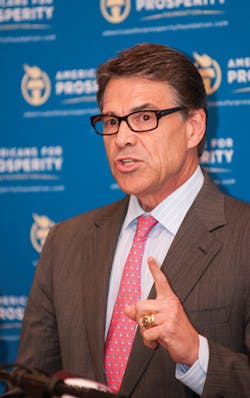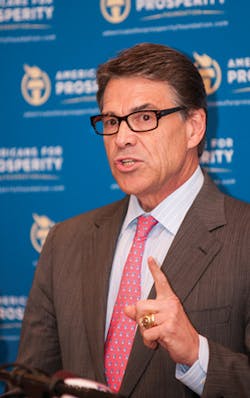The importance of carbon capture
The energy ministers of Canada, China, Norway, and the United States, as well as heads of delegation from Australia and the European Commission, along with leaders from the industry and key organizations, were invited by the International Energy Agency (IEA) and China to review how to increase collaboration in order to drive further deployment of carbon capture, utilization, and storage (CCUS).
The meeting was held ahead of the 8th Clean Energy Ministerial (CEM8), in Beijing. Ministers and panelists discussed the factors that have attracted investment to current CCUS projects and highlighted the importance of identifying where these factors could converge to replicate recent success with CCUS projects.
The discussion centred on the vital role of CCUS in reducing carbon dioxide emissions while ensuring energy security. Participants acknowledged the importance of revenue streams, such as from CO2 utilization, available transport and storage options, and political leadership in securing investment in CCUS projects.
Hosting the event, Dr. Fatih Birol, the IEA Executive Director, said the IEA would undertake detailed analysis of the conditions and factors that have led to the investment in existing CCUS projects and how they may be replicated elsewhere.
The countries represented in the discussion host 19 of the 22 projects currently in operation or construction globally. China, the host of the 8th Clean Energy Ministerial (CEM 8), recently announced the beginning of construction on the country's first large-scale CCUS project in Shaanxi Province. The Minister for Science and Technology of the People's Republic of China, Wan Gang, co-hosted the discussion.
US Department of Energy Secretary Rick Perry said, "I don't believe you can have a real conversation about clean energy without including CCUS. The United States understands the importance of this clean technology and its vital role in the future of energy production.
"We have already seen the success of projects like Petra Nova in Texas, which is the world's largest post-combustion carbon-capture system," Perry said. "Our experience with CCUS proves that you can do the right thing for the environment and the economy too."
The system at Petra Nova can capture 1.6 million tons of CO2 each year from an existing coal-fired power plant unit, a capture rate of up to 90% from a supplied slipstream of flue gas. By using CO2 captured from the plant, oil production at West Ranch oilfield is expected to increase from around 500 barrels per day to up to 15,000 barrels per day.
Jim Carr, Canada's Minister of Natural Resources said: "Carbon capture, use and storage holds enormous potential to enable economic growth and create jobs, while ensuring the environment is protected."
"Canada hopes to continue working with domestic and international partners - including through the Clean Energy Ministerial and Mission Innovation - to help us all address the technical and policy challenges around wide scale implementation of this important technology," he added.
The IEA has consistently highlighted the importance of CCUS in low-carbon energy systems.
The leaders recognized the importance of CCUS technology as an essential tool in the global effort to achieve deep reductions in carbon dioxide emissions and prevent global temperature rises in future decades.
The high-level discussion was held ahead of CEM8, a key forum for international collaboration on clean energy technologies.
The International Energy Agency was founded in 1974. Its mission includes working to ensure global energy security; expanding energy cooperation and dialogue around the world; and promoting an environmentally sustainable energy future .
Renegotiating NAFTA
A bipartisan group of US senators with major energy interests in their states has submitted a list of specific "principles" that it wants the Trump administration to consider when it renegotiates NAFTA.
"NAFTA has played a key role in all North American energy markets, including electricity, renewable, oil, and natural gas, as each market is highly integrated with and remains dependent on vital energy infrastructure and trade crossings that border the United States, Canada, and Mexico," the eight lawmakers wrote in a letter organized by Sen. John Cornyn (R-Texas).
The senators, in their letter to US Trade Representative Robert Lighthizer, set out eight points that they say should be considered in order "to protect American energy consumers and producers and enhance US energy security."
First on the list is a demand that any revised deal allow for the free flow of electricity, oil, natural gas, refined products, petrochemicals, and other energy-intensive manufactured goods. Among other things, the lawmakers also want zero tariffs on all energy products; competitive and transparent bidding for licenses; investor protections; and product-specific rules to allow the use of diluent, a lubricant added to crude oil for pipeline transit of oil.


